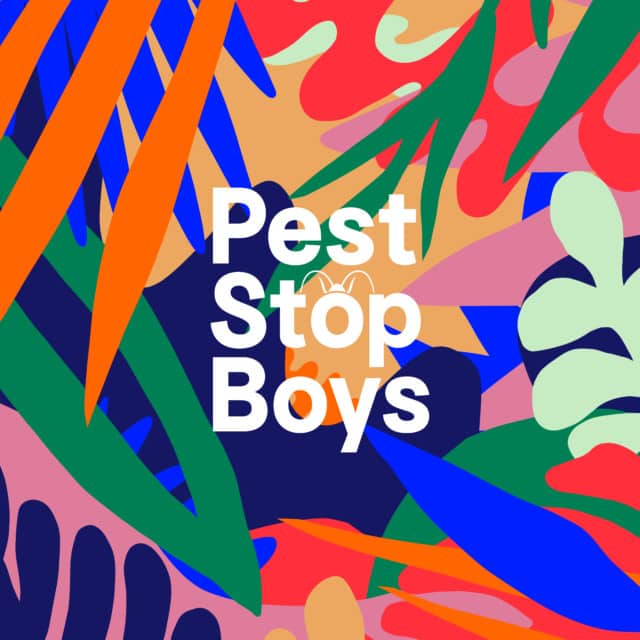Bird Information
Birds are a vital part of the world’s ecosystem. They help to control pest levels, and they keep plant populations thriving by dispersing seeds and, in some cases, even pollinating. Some birds prevent disease by scavenging on dead animals and other waste, and in some parts of the world, their droppings (known as guano) can fertilise areas like coral reefs.
They’ve inspired science, too: did you know that a falcon’s nostrils helped shape the jet aeroplane?
For the most part, birds and humans co-exist quite nicely. But despite all this information about birds and their benefits, there’s still a very real need for bird pest control.
Birds might not be the first animals you think of when it comes to pests…but they can cause just as many problems for both homeowners and businesses as their rodent and insect counterparts. That’s why we’ve collated this bird information: a guide to the most common pest birds, the damage they can cause, and the best bird pest control methods to tackle the issue.
The number of bird species considered to be pests might surprise you…but birds nesting in any commercial or residential property can cause all sorts of chaos (more on this below). These are some of the most common bird species considered pests in the UK:
- Gulls. These birds are scavengers and often nest in residential or commercial areas where they know they’ll find food.
- Pigeons. They carry bird mites which can cause disease, and their acidic urine can cause great damage.
- Starlings. Starlings can descend in their thousands, leaving vast amounts of corrosive droppings in one place.
- Sparrows. Sparrows love to nest in gutters and drainage pipes, often causing blockages.
- Collared doves. These birds are sometimes considered pests because of their noise levels – and because they carry parasitic diseases.
After reading our information about birds as pests, we think you’ll be surprised at just how much damage they can cause! This damage can affect both businesses and residential properties and includes:
- Spreading diseases, insects and parasites. Nests, droppings and the birds’ feathers themselves can host all sorts of nasties. Bacteria, viruses, parasites, ticks, lice, mites, fleas…they’re all possibilities without bird pest control, and some of them can attack humans too.
- Fouling. Bird droppings on and around your property don’t look great. They’re also unhygienic and can cause some of the diseases mentioned above – and they can be slippery underfoot, too. On business premises, they can also contaminate stock. What’s more, they can lead to…
- Physical damage. Bird droppings are acidic by nature. Whether it’s wood, metal, paint or even concrete, they can cause huge amounts of damage – and over time, this damage can become structural. It’s not just the droppings that can damage your property, though: nesting activity can block drains and gutters, leading to flooding and standing water.
- Aggression. There are two key reasons behind aggressive behaviour in pest birds. The first is a desire to protect their young: you might notice that some birds, like starlings, are more aggressive to other birds (and sometimes humans) in nesting season. The second is a desire for food. You’ll no doubt have seen this at seaside resorts in the summer, with seagulls fighting over dropped food and even stealing food directly from people’s hands.
It’s for these reasons that reliable bird pest control is so important.




As we mentioned earlier, birds play a vital role in our ecosystem. For that reason, our chosen bird pest control methods are ones that deter birds from making their home on your property.
There are many ways of doing this, including:
- Netting
- Bird spikes
- Posts
- Wires
- Bird-repellent gel
- Electric deterrents
The two most important things you’ll want to do are bird-proofing your building, plus removing access to food sources and nesting materials where possible. Timing is also important: you’ll want to do this before the nesting season so birds don’t give your premises a second thought.
Armed with the right information about birds, you can better understand how they behave, why they can be problematic and what can be done about them. We want to make sure you’ve got all the bird information you need – and if you’re looking for more comprehensive information about specific bird types, we’ve got you covered.
Pigeons proving problematic? On our Pigeon Pest Control & Proofing page, you’ll learn about their huge broods and nesting habits, as well as the issues these specific birds can cause. You’ll also discover how we deal with pigeon infestations – and the steps you can take to keep them away from your property.
Visit our pigeon pest control & proofing page here.
If it’s seagulls you’re looking to learn more about, you’ll find our Seagull Pest Control & Proofing page here. Did you know that harming or killing a seagull can land you with a fine of up to £5,000 or even a prison sentence? There are ways to reduce the likelihood that they’ll nest on your property…but seagulls, as you’ll see, are notoriously tricky to displace without professional help.
Visit our seagull pest control & proofing page here.
With the right bird information, you can understand the problem you’re dealing with, how serious it could potentially get, and how best to tackle it. Birds may, on the face of it, seem like a minor inconvenience compared with pests like fleas, rats or wasps. The truth, though, is that they can wreak havoc in terms of damage, disease and more. But don’t worry: with the right bird pest control and proofing methods, these are problems that you can banish for good.

